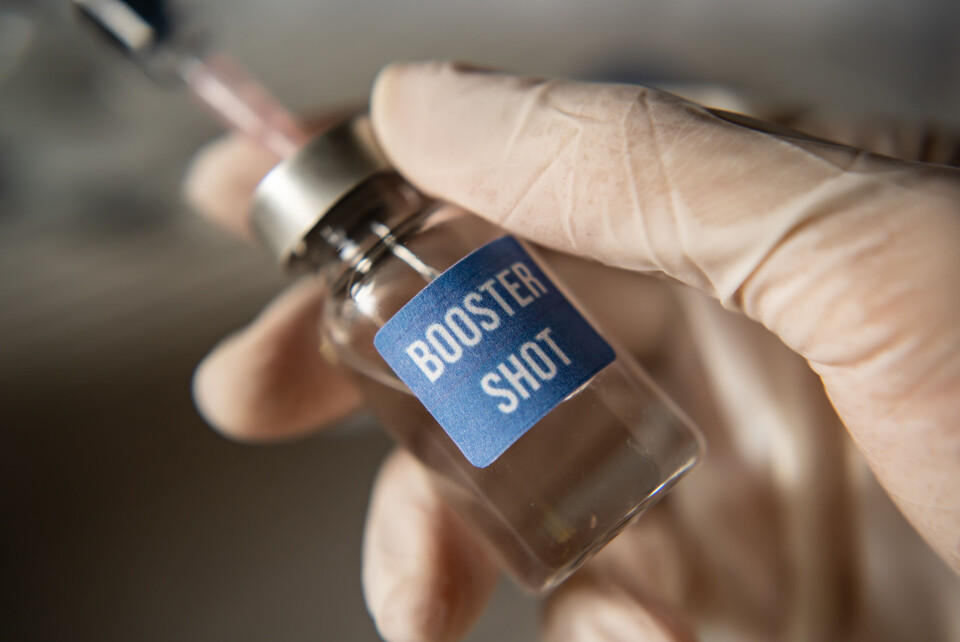-
France updates official advice for travellers to US
Recent decree requires travellers to hand over gender information
-
All about the new CDG Express, set to link Paris and CDG airport
The new service is scheduled to open in May 2027
-
What equipment is obligatory for a cyclist in France in 2025?
We recap the rules on safety and bike condition, and the fines for non-compliance
Fifth Covid wave spreading ‘lightning fast’ across France - government
Cases have risen by more than 81% in the past week, as health experts debate whether to open booster jabs up to people aged 40 and over, or even to the entire population

Covid cases have risen “almost 80%” in one week and the fifth wave is spreading “lightning fast”, the government’s spokesperson said yesterday (Sunday, November 21). It comes as health authorities advise giving booster jabs to the over 40s.
Gabriel Attal made the statement on CNews saying: “I think we are now at 17,000 cases per day on average, with an incidence rate of 164 per 100,000 inhabitants. [This] was at 100 at the beginning of the week. We are therefore seeing a very high increase of infections.”
The actual figures were slightly worse; on November 21, there were 19,749 confirmed cases compared to 10,023 the Sunday before - a rise of 81.4%. The incidence rate was 171 on Sunday.
Water analysis levels – sometimes used as a key marker of Covid spread – have also shown evidence of this rise, with samples from around Marseille (for example) showing a high presence of Covid, especially in the north of the city.
Yet, Mr Attal said that while there were some elements that could “worry us”, there were also aspects of the situation that could “give us confidence”.
These include a very “high vaccine coverage”, and the fact that France is “rather ahead compared to its neighbours on the vaccination booster”.
Just over 77% of the population in France has received at least one dose of vaccine, with 75% having received the two doses required for coverage.
Health pass helped
Mr Attal also said that the use of the health pass in France “from the summer” had improved the national situation, and would continue to do so as the fifth wave intensifies.
He also hailed the government’s “choice to make the constraints weigh on the non-vaccinated, rather than the vaccinated”.
The spokesperson said that checks of the health pass had risen by 102% in the past week, meaning that “in the first four days of this week”, 70,000 people were checked, and there were more than 4,300 checks at establishments that are open to the public.
Will France roll out booster jabs for more people?
It is looking increasingly more likely, although the government has not confirmed anything yet. Mr Attal simply called on eligible people to have their booster jab as soon as possible.
Currently, boosters are available in France for people who are 65 and over, care home residents, at high risk of a severe infection, healthcare professionals and/or those close to immunosuppressed people.
From December this will also be opened up to people aged over 50.
President Emmanuel Macron announced on November 9 that the booster dose campaign would be expanded to include everyone aged 50 and over from the beginning of December.
But on Friday, November 19, health authority La Haute Autorité de Santé recommended that people aged 40 and over be offered a booster jab. And it comes as health experts suggest that France may (or should) soon roll out booster jabs to the entire population.
Read more: French health authority recommends Covid booster shot for all over 40s
Countries such as the US have already done this.
Experts such as Professor Jean-François Delfraissy, president of government advisory body le Conseil scientifique on Covid-19, last week said: “[Vaccines] lose part of their effectiveness after five to six months, hence the need for a booster dose.”
And in a statement on October 6, the HAS said: “The most recent studies confirm a drop in vaccine effectiveness over time, against Delta infections.”
The HAS referenced a study published early November in The New England Journal of Medicine, which stated that the effectiveness of the Pfizer jab drops by 6% on average every two months.
The authority is now considering whether to advise rolling out booster jabs to more people. It said: “While this gradual drop in protection following the first vaccination is generally seen in older people, certain studies are showing that it affects groups of all ages (over 18).”
Booster jabs can be given from six months after the second round of vaccinations.
First vaccinations for the over-50s opened in France in late February this year, and for everyone over 18 from mid-May, meaning that these groups technically became eligible for a booster jab at the six-month mark from mid-August, and everyone else from mid-November (now).
One study in medical journal The Lancet showed that one week after receiving the Pfizer booster jab, it prevented the risk of hospitalisation from Covid by 93%, and the risk of death by 81%.
A British study confirmed this; it showed that after receiving a booster dose of either the AstraZeneca or Pfizer jab, protection against symptoms among adults aged 50 and over rose to 93% and 94% respectively.
Are there enough doses to vaccinate everyone again?
Yes. If the country does decide to offer booster jabs to more people, it will likely have enough doses to do so by summer next year.
If the entire population is offered a booster, this will require the vaccination of 50.5 million people, data from the ministry of health suggests. As of November 18, France had almost 38.6 million doses of Pfizer and Moderna already in place, with 65 million doses on order set to be delivered by July 2022.
Related articles
Coronavirus: Daily updates on the situation in France
No lockdown for the unvaccinated in France, says Macron
























